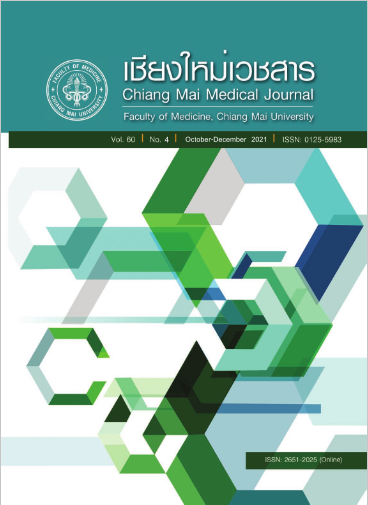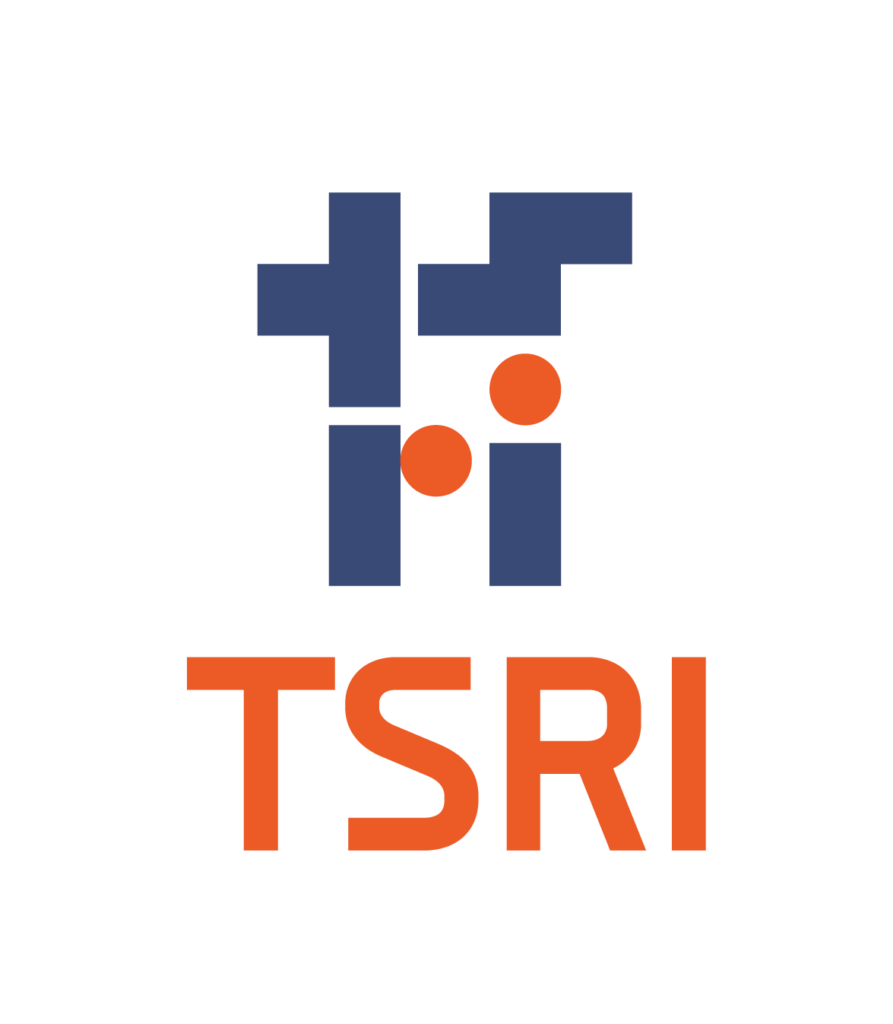A pilot study: The effectiveness of the mindfulness training program to reduce ADHD symptoms among 12-15 year-old adolescents with the risk of ADHD
คำสำคัญ:
วัยรุ่น การฝึกสติ โรคสมาธิสั้น ปัญหาพฤติกรรม การทำงานของสมองบทคัดย่อ
วัตถุประสงค์: เพื่อศึกษาประสิทธิผลของโปรแกรมการฝึกสติต่ออาการสมาธิสั้น ปัญหาพฤติกรรม และการทำงานของสมอง ของวัยรุ่นอายุ 12-15 ปี ที่มีความเสี่ยงต่อการเป็นโรคสมาธิสั้น จำนวน 28 คน ณ โรงเรียนสังกัดสำนักงานคณะกรรมการศึกษาขั้นพื้นฐาน (สพฐ.)
วิธีการ: งานวิจัยนี้เป็นการวิจัยเชิงทดลองแบบมีการสุ่มและมีกลุ่มควบคุม เก็บข้อมูลในระยะก่อนการทดลอง หลังการทดลอง และ หลังการทดลอง 8 สัปดาห์ โดยใช้ Thai ADHD Screening Scales (THASS) ฉบับตนเองและฉบับครูเพื่อประเมินอาการสมาธิสั้น, Pediatric Symptom Checklist (PSC) ฉบับตนเองเพื่อประเมินปัญหาอารมณ์พฤติกรรม และ Wechsler Intelligence Scale for Children – 3rd Edition (WISC-III) เพื่อประเมินการทำงานของสมอง ทั้งนี้โปรแกรมการฝึกสติได้ถูกจัดขึ้นสัปดาห์ละครั้ง ครั้งละ 90 นาที นาน 7 สัปดาห์ติดต่อกัน
ผลการศึกษา: จากการประเมินตนเอง กลุ่มทดลองได้คะแนนดีกว่ากลุ่มควบคุมอย่างมีนัยสำคัญที่ระดับ .05 ในด้านพฤติกรรมเกเร ส่วนปัญหาพฤติกรรมด้านอื่นๆ อาการสมาธิสั้น และ การทำงานของสมองไม่แตกต่างกันอย่างมีนัยสำคัญ เช่นเดียวกับการประเมินจากครูในด้านอาการสมาธิสั้นที่ไม่แตกต่างกันอย่างมีนัยสำคัญ
สรุป: โปรแกรมการฝึกสติช่วยลดพฤติกรรมเกเรของวัยรุ่นที่มีความเสี่ยงต่ออาการสมาธิสั้นได้ได้ แต่ไม่ช่วยลดอาการสมาธิสั้นและไม่มีผลต่อการทำงานของสมอง
เอกสารอ้างอิง
Polanczyk G, de Lima MS, Horta BL, Biederman J, Rohde LA. The worldwide prevalence of ADHD: a systematic review and metaregression analysis. Am J Psychiatry. 2007;164:942-8.
Cairncross M, Miller CJ. The effectiveness of mindfulness-based therapies for ADHD: a meta-analytic review. J Atten Disord. 2020;24: 627-43.
Boonyaprakob V. phatthanā Bukkhalikkaphāp Khōng Dek Læ Wairun. In: Piyasil W, Katumarn P, editors. Child and adolescent psychiatry. Nontaburi: Beyond Enterprise; 2002. p. 1-31.
Daley D, Birchwood J. ADHD and academic performance: why does ADHD impact on academic performance and what can be done to support ADHD children in the classroom? Child Care Health Dev. 2010;36:455-64.
Jerome L, Segal A, Habinski L. What We Know About ADHD and Driving Risk: A Literature Review, Meta-Analysis and Critique. J Can Acad Child Adolesc Psychiatry. 2006;15:105-25.
Sarver DE, McCart MR, Sheidow AJ, Letourneau EJ. ADHD and risky sexual behavior in adolescents: Conduct problems and substance use as mediators of risk. J Child Psychol Psychiatry. 2014;55:1345-53.
Groen Y, Gaastra GF, Lewis-Evans B, Tucha O. Risky behavior in gambling tasks in individuals with ADHD – A systematic literature review. PLoS One. 2013;8(9):e74909.
Meppelink R, de Bruin EI, Bögels SM. Meditation or Medication? Mindfulness training versus medication in the treatment of childhood ADHD: a randomized controlled trial. BMC Psychiatry. 2016;16:1-16.
Formsma AR. Mindfulness Training for Adolescents with ADHD and their Parents. Amsterdam: University of Amsterdam; 2011.
Zylowska L, Ackerman DL, Yang MH, Futrell JL, Horton NL, Hale TS, et al. Mindfulness meditation training in adults and adolescents with ADHD: a feasibility study. J Atten Disord. 2008;11:737-46.
Bögels S, Hoogstad B, van Dun L, de Schutter S, Restifo K. Mindfulness training for adolescents with externalizing disorders and their parents. Behavioural and Cognitive Psychotherapy. 2008;36:193-209.
Van de Weijer-Bergsma E, Formsma AR, de Bruin EI, Bögels SM. The effectiveness of mindfulness training on behavioral problems and attentional functioning in adolescents with ADHD. J Child Fam Stud. 2012;21:775-87.
Haydicky J, Shecter C, Wiener J, Ducharme JM. Evaluation of MBCT for adolescents with ADHD and their parents: impact on individual and family functioning. J Child Fam Stud. 2015;24:76-94.
Househam AM, Solanto MV. Mindfulness as an Intervention for ADHD. New York: The Guilford Press, 2016.
Pornnoppadol C, Piyasil V, Jittorn J, Chanpen S. The Development of Screening Scales for attention deficit hyperactivity disorder (ADHD) in Thai children and adolescents age of 3-18 years. Journal of Psychiatry Association Thailand 2014;59:335-354. (in Thai)
Pornnoppadol C, Apinuntavech S, Vasupanrajit A, Chanpen S. Pediatric symptom checklist: PSC-17 (THAI version). Bangkok: Faculty of Medicine Siriraj Hospital. 2017.
Channarong P, Vechvirool C, Watnitrommanee K, editors. Thai Version Intelligence WISC-III Manual. Nonthaburi: Department of Mental Health; 2004.
Zylowska L. The mindfulness prescription for adult ADHD. Massachusetts: Shambhala Publications, 2012.
Van der Oord S, Bögels SM, Peijnenburg D. The Effectiveness of Mindfulness Training for children with ADHD and mindful parenting for their parents. J Child Fam Stud. 2012;21:139–47.
Lloyd A, White R, Eames C. Crane R. The utility of home-practice in mindfulness-based group. Mindfulness (N Y). 2018;9:673-92. interventions: a systematic review.
Parsons C, Crane C, Parsons L, Fjorback L, Kuyken W. Home practice in mindfulness-based cognitive therapy and mindfulness-based stress reduction: a systematic review and meta-analysis of participants’ mindfulness practice and its association with outcomes. Behav Res Ther. 2017;95:29-41.
Franco C, Mañas I, Cangas A, Gallego J. Exploring the Effects of a Mindfulness Program for students of secondary school. International Journal of Knowledge Society Research. 2011;2:14-28.
Schonert-Reichl K, Lawlor M. The Effects of a Mindfulness-Based Education Program on pre- and early adolescents’ well-being and social and emotional competence. Mindfulness 2010;1:137-51.
Sibalis A, Milligan K, Pun C, McKeough T, Schmidt L, Segalowitz S. An EEG Investigation of the Attention-Related Impact of Mindfulness Training in Youth With ADHD: Outcomes and Methodological Considerations. Journal of Attention Disorders. 2019;23:733-43.
Duangrat A, Sirithadakunlaph S, Supwirapakorn W. The effects of combined mind and behavioral training program on attention improvement in children with attention deficit hyperactivity disorder. Journal of Educational Measurement, Mahasarakham University 2018; 24:281-93.
Boon-yasidhi V. Attention deficit hyperactivity disorder: diagnosis and management. [cited 2018 December 20]. Available from: http://www.psychiatry.or.th/JOURNAL/57-4/00-Vitharon.pdf.
ดาวน์โหลด
เผยแพร่แล้ว
รูปแบบการอ้างอิง
ฉบับ
ประเภทบทความ
สัญญาอนุญาต

อนุญาตภายใต้เงื่อนไข Creative Commons Attribution-NonCommercial-NoDerivatives 4.0 International License.










